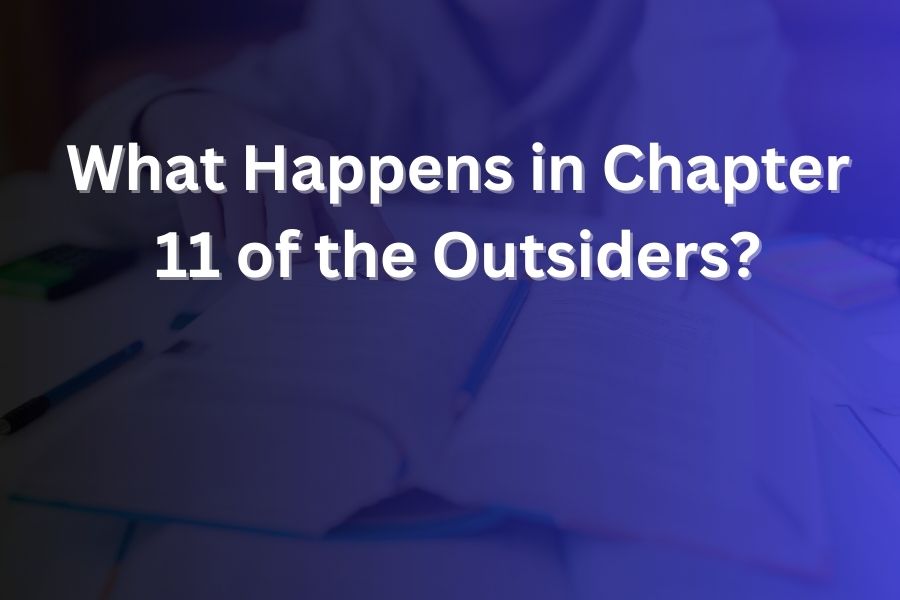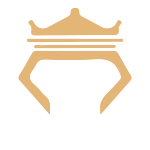
In this critical chapter of The Outsiders by S. E. Hinton follows Ponyboy Curtis as he lies in bed recovering and begins to confront more than physical wounds. You’ll see him face his fear, re-examine his identity, and wrestle with guilt.
In this article you’ll learn what happens in Chapter 11, what it reveals about Ponyboy’s character, and how it prepares the way for what comes next.
Ponyboy’s Forced Rest and Isolation
Ponyboy wakes up from his concussion, still clouded by events. Doctors demand he stays in bed for about a week. This forced rest becomes a kind of limbo for him.
He’s disconnected from his brothers Darry Curtis and Sodapop Curtis, from his gang, from the world outside—and inside, his thoughts spin. He flips through Soda’s old yearbooks, an effort to kill time. While passing the hours he finds the picture of Bob Sheldon and something shifts.
Encountering Bob’s Image — Recognizing Humanity
Finding Bob’s yearbook photo triggers something unexpected in Ponyboy. He recognizes Bob—he recognizes the grin that also shows up in Soda’s yearbook. He wonders what Bob was like when he wasn’t a Soc tough guy.
He imagines what Bob’s parents feel. Instead of simply seeing Bob as a villain, he begins to see him as human. He reflects on Bob’s qualities: cocky, sometimes quick to anger, but also frightened. The moment marks a turning point: Ponyboy is starting to break down simple categories of Greaser versus Soc.
A Visit from Randy — Two Worlds Collide
Into this fragile state comes Randy Adderson, Bob’s friend and a Soc. Randy has come to check on Ponyboy. He carries his own guilt and confusion. He says he plans to tell the truth at the upcoming hearing. Ponyboy hears Randy talk about disappointing his father, worried about his role in the fight.
Pony realizes Randy has far less to lose. Randy’s wealthy background could pay off fines, smooth things over. Pony’s world is different: no parents, living with brothers who might lose custody of him if things go wrong. The contrast deepens Ponyboy’s fear: this case might break apart his family.
Ponyboy’s Confession — Guilt and Denial
During Randy’s visit Ponyboy says something dramatic: “I had the knife. I killed Bob.” He insists Johnny is not dead. In truth, Johnny pulled the knife that night. But Ponyboy’s mind refuses to accept some facts.
He takes responsibility, maybe because he feels if Johnny is gone, he has no anchor left. Maybe he fears being separated from his brothers. His inner turmoil turns into confusion in his words. Darry has to intervene. He sends Randy away and later tells him Ponyboy still suffers mentally and emotionally.
Fear for the Family — More Than Legal Consequences
While fairness and justice loom, what scares Pony most is losing his home. He imagines Soda and himself being sent off if Darry loses his guardianship. In previous chapters he speculated about boys’ homes.
The legal hearing isn’t just about Bob and Johnny. It’s about whether Ponyboy’s world will remain intact. His home with his brothers, his identity as Greaser, his survival. This adds anxiety beyond physical injury.
Mental and Emotional Healing Begin
Chapter 11 closes less with resolution and more with the first steps toward healing. Pony has stopped battling just Socs or Greasers. He is beginning to battle himself. Recognizing Bob’s humanity is part of that.
Accepting vulnerability is part of that. This chapter sets the stage for the next one where Ponyboy will face the hearing and start to piece himself together. He is physically mending, but emotionally wounded. This chapter’s rest becomes transformation.
Key Themes Reinforced by Chapter 11
- Identity and transformation: Pony is shifting from seeing the world as black-white to shades of gray.
- Guilt and responsibility: Though Johnny killed Bob, Ponyboy claims guilt. He wrestles with collective/community guilt.
- Class & empathy: Buddying with Randy—even if unwillingly—Pony sees someone from the “other side” who carries pain too.
- Family and belonging: The fear of family fragmentation looms large. The Curtis home is at risk.
- Trauma and recovery: The bed rest symbolizes forced stillness. But the mind is restless. Healing begins not in action but in reflection.
What You Learn About Ponyboy
You learn that Ponyboy is more than a narrator. He’s deeply wounded, both physically and emotionally. He has grown used to being hyper-aware of danger, to reacting. But now he has to sit still. He is forced to look at his life, his choices, his losses.
You see him scared—not of Socs or Greasers, but of losing home. You see him confused about loyalty. You see him trying to hold onto Johnny by refusing Johnny’s death. This is a crucial growth point.
What This Chapter Prepares For
Chapter 11 doesn’t resolve the conflict but it prepares several scenes ahead:
- The hearing before the judge, setting up legal stakes.
- The eventual emotional fallout and recovery.
- Ponyboy’s decision to write, to tell the story and change something.
- The deeper internal conflict of Ponyboy finding his voice and place.
Conclusion
In Chapter 11 of The Outsiders, Ponyboy lies in bed and begins to confront more than just the bruises. He scrutinizes Bob’s photo and sees a human face. He meets Randy and becomes ever more aware of the fragile line between Greaser and Soc. He confesses guilt, refuses reality, and fears losing his home with his brothers.
This chapter is less action and more become-moment. It shifts Ponyboy’s journey from survival to reflection. For you reading the novel this chapter matters because it brings to the surface internal conflict, sets up the hearing and future healing, and deepens the themes of class, identity, and family.
FAQ’s
- Why does Ponyboy stay in bed for a week?
After suffering a concussion and shock from events, his doctors insist on complete rest to allow both physical and mental recovery. - Who visits Ponyboy in Chapter 11 and why?
Randy Adderson visits to talk about the upcoming judge hearing and to admit he feels guilty about his role in the fight and Bob’s death. - What does Ponyboy’s reaction to Bob’s yearbook photo signify?
Ponyboy begins to see Bob as a human being rather than simply an enemy, which marks emotional growth and a shift in perspective. - Why does Ponyboy say he killed Bob even though Johnny did?
Ponyboy is in denial and guilt-ridden. Taking responsibility may reflect his fear of losing his brothers, his identity, or being blamed for everything. - What major fear does Ponyboy reveal in this chapter?
He fears that the hearing might end his living arrangement with his brothers and send him or Soda to a institution or foster home if Darry loses guardianship. - How does this chapter contribute to the theme of class conflict?
By showing Randy’s wealthy background and Ponyboy’s precarious one, the chapter highlights how class shapes consequences and how empathy can cross those lines. - How does Chapter 11 set up the rest of the novel?
It prepares you for the upcoming court hearing, deeper emotional healing, Ponyboy’s narrative voice development, and the evolution from reactive teenager to someone who reflects on his world.
